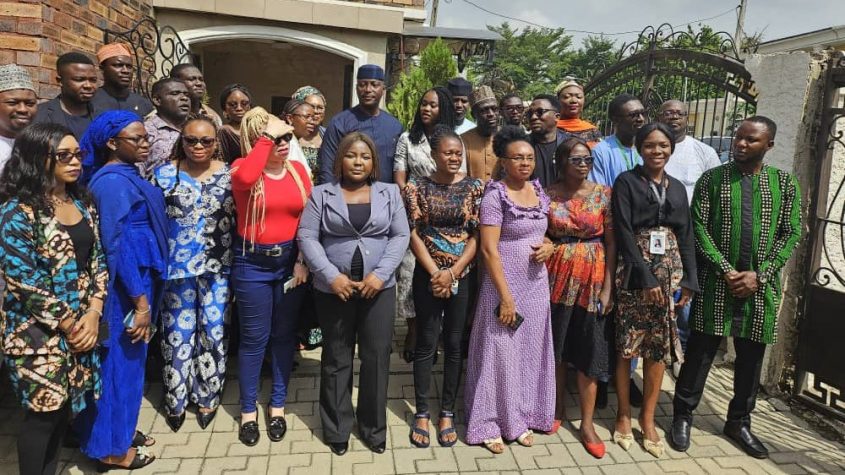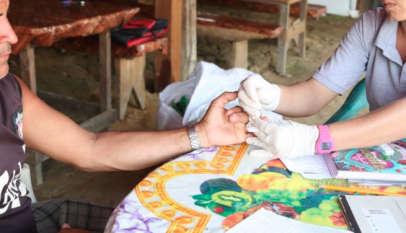INTERVIEW | “Africa Can’t Achieve Peace, Security Without Youth Inclusion”
Air Commodore David Akrong, Deputy Commandant of the Kofi Annan International Peacekeeping Training Centre (KAIPTC), speaks about the Centre’s ongoing continent-wide consultations on deepening the strategic role of young people in Africa’s peace and security agenda.
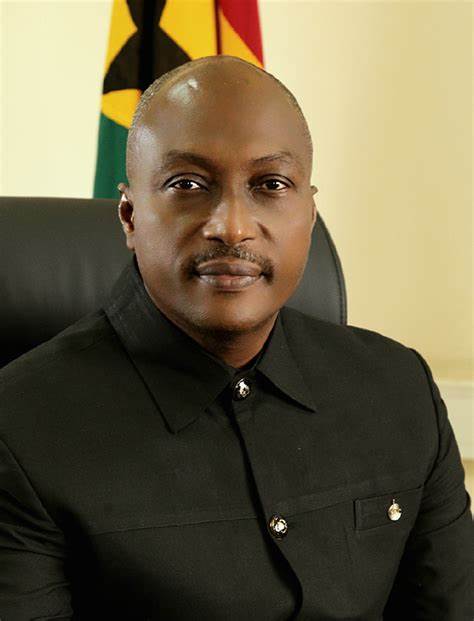
Newspage: You are in Abuja, Nigeria on a mission to do with mainstreaming of women and youth in the peace and security agenda of the continent. Can you please expatiate on your mission here?
Akrong: The KAIPTC is working on a project sponsored by the Swedish International Development Agency (SIDA) themed: “Deepening the Role of Women and the Youth in the Implementation of the Women Youth Peace and Security Agenda in Africa”. The project is being run by the Centre’s Women, Youth, Peace and Security Department. It is focused on issues such as women empowerment, gender-based violence, terrorism as well as youth leadership and peacebuilding.
Our focus on youth leadership and peacebuilding is thanks to the fact that 70% of Sub-Saharan Africa’s population is young people – higher than in any other continent of the world. This presents the continent with a huge opportunity that we can take advantage of – these young people are innovative; they have the energy and drive to work. But they also face lots of challenges, identifying which is the purpose of KAIPTC’s engagement with stakeholders in the Youth, Peace and Security (YPS) space.
I believe we can help the youth channel their creative energies into national development and make a positive impact. So, the visit to Nigeria is one of several missions to African countries by KAIPTC, the first being Kenya where we consulted youth leaders, CSOs, government agencies and universities. Last month, we were in Uganda and next week, the delegation will be in Senegal. These are the focal countries for the project.
The series of consultations seek to come up with sound ideas and map out crucial challenges affecting the youth population through constructive engagements and subsequently arrive at meaningful solutions and strategies to address the identified challenges. We want to enhance youth involvement in politics, peace and security and the entire development process to enable them to contribute meaningfully to society.
At the end of all of these consultative engagements across the different countries we are visiting, we want to identify individuals in key leadership positions in relation to youth from across the targeted countries and present our findings to them. We want to give them the opportunity to share ideas and experiences among themselves to chart a collective way forward. These will ultimately lead to a policy brief by KAIPTC to assist the governments in making political decisions regarding young people.
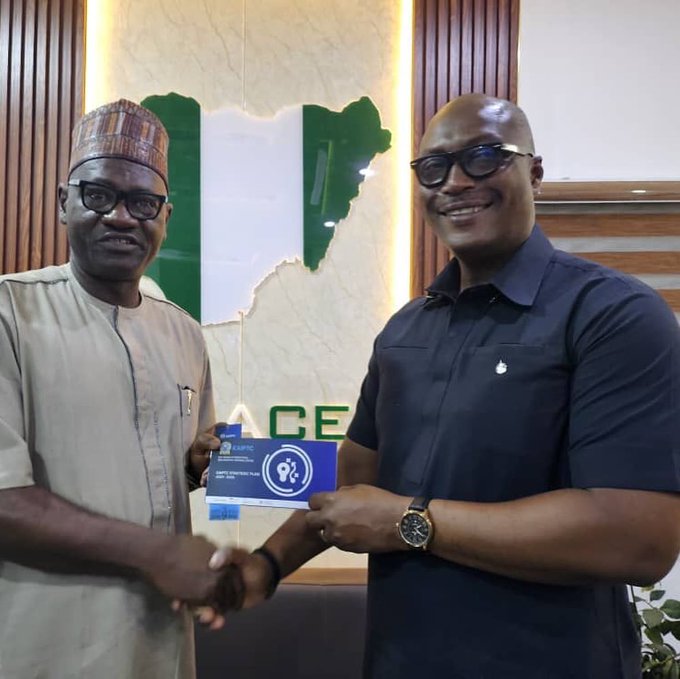
Newspage: Having been to Kenya, Uganda and now Nigeria on this mission, what is your assessment of the potential impact of young people in the whole peace and security agenda of the continent?
Akrong: We cannot achieve peace and security without addressing youth challenges or including young people in the socio-economic development of our countries. To address peace and security challenges, we need to create an enabling environment for the youth who have got energy and innovative skills to thrive. All they need is an enabling environment for them to work and contribute meaningfully to societal development.
If you make young people part of the process of nation building, they will never want to allow anything they contribute to creating to be destroyed. For instance, in Uganda’s Parliament, they have a dedicated quota for youth and women which cannot be occupied by anyone else. This means there is inclusion in governance.
The failure of governments to address the challenges of young people means our peace and security endeavors will never be fruitful, since they represent 70% of people living in Africa. Research has also shown that young people do not engage in social vices because they actually want to, rather, they do it for socioeconomic reasons and because of the promise and benefits such vices offer to them, even if it’s only for a short term.
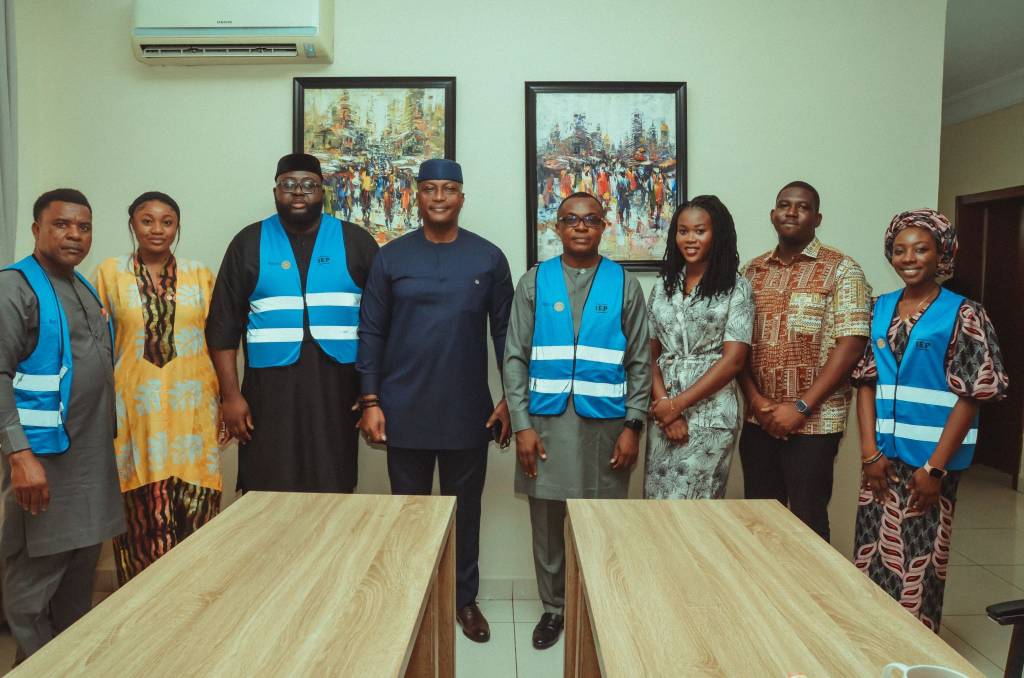
Newspage How will these consultations that you are having across the continent shape the project on deepening youth inclusion in peace and security? What are you looking forward to beyond these consultations?
Akrong: All these engagements are meant to help us identify the challenges around youth, peace and security and show us how best they can be addressed. When we eventually convene all the stakeholders, we will present to them all the problems identified in the course of these consultative engagements and the solutions proffered by experts in the form of a policy brief to help them address their youth-related challenges.
The outcome of these consultations will lead to a symposium which will bring all decision makers to a common platform to disseminate the output of the consultation for awareness, creation, education, as well as for policy change. We also want to develop a knowledge management product on the role of youth in peacebuilding.

Newspage: As a think-tank, you do not have a mechanism to enforce the recommendations of your findings. What are you going to do to ensure that the findings of this project get implemented or even integrated into the national action plans on youth peace and security of the targeted countries?
Akrong: It is quite commendable that Nigeria is the first country in Africa and the second in the world to have developed a National Action Plan on Youth, Peace and Security in 2011, which I learned is going to expire by the end of 2024. Yet, there are teething challenges with regard to its implementation.
Ghana will soon roll-out its own National Action Plan, which means it can learn from Nigeria’s challenges in implementing its own plan and avoid repeating the same mistakes, as well as shorten its own implementation time. The overall aim of these consultations is to help countries learn from one another in terms of their youth, peace and security agendas.
Now, KAIPTC will engage in policy dialogues with policymakers and decision makers at the national, sub-regional and the continental levels. Ours is to tell them these are our findings in terms of what the young people want to create an enabling environment for them to thrive and we believe if you act upon them the challenge of youth, peace and security will largely be addressed.
Editor’s Note: This interview has been edited for length and clarity

